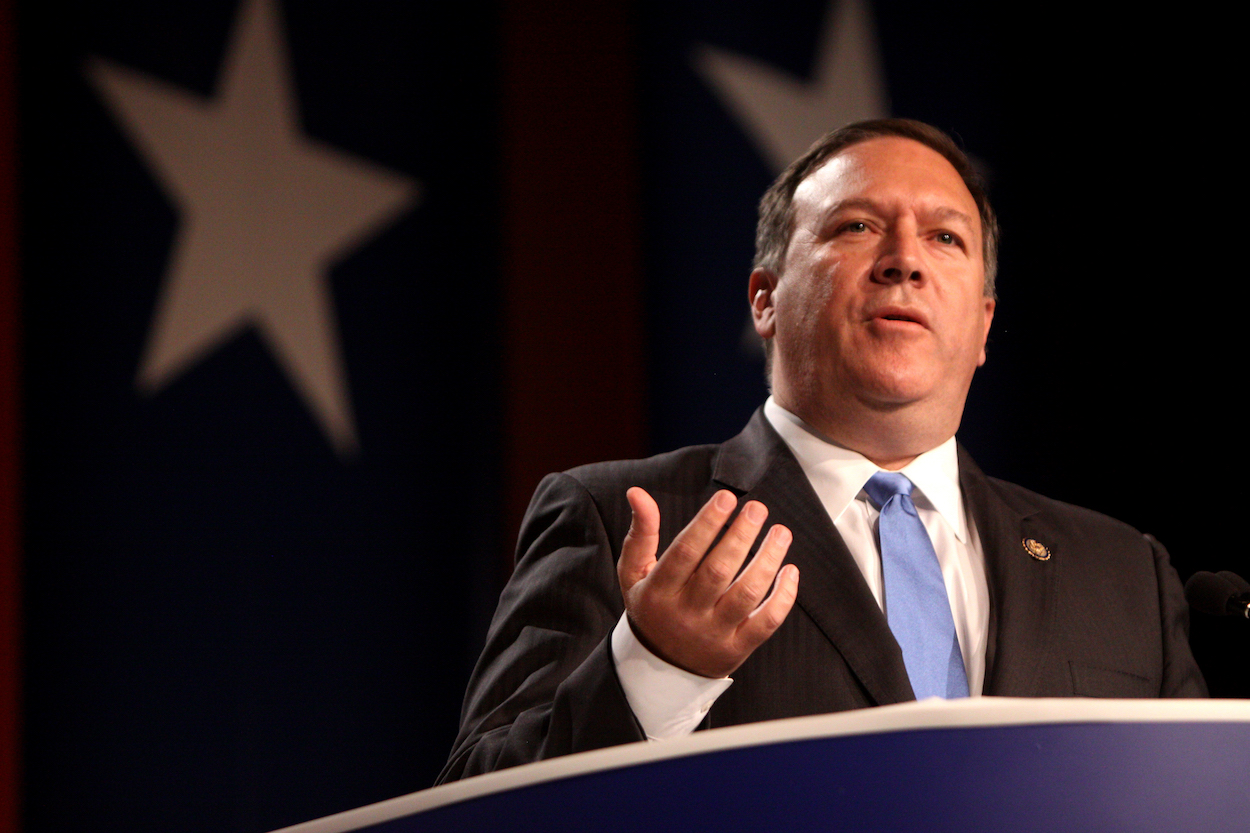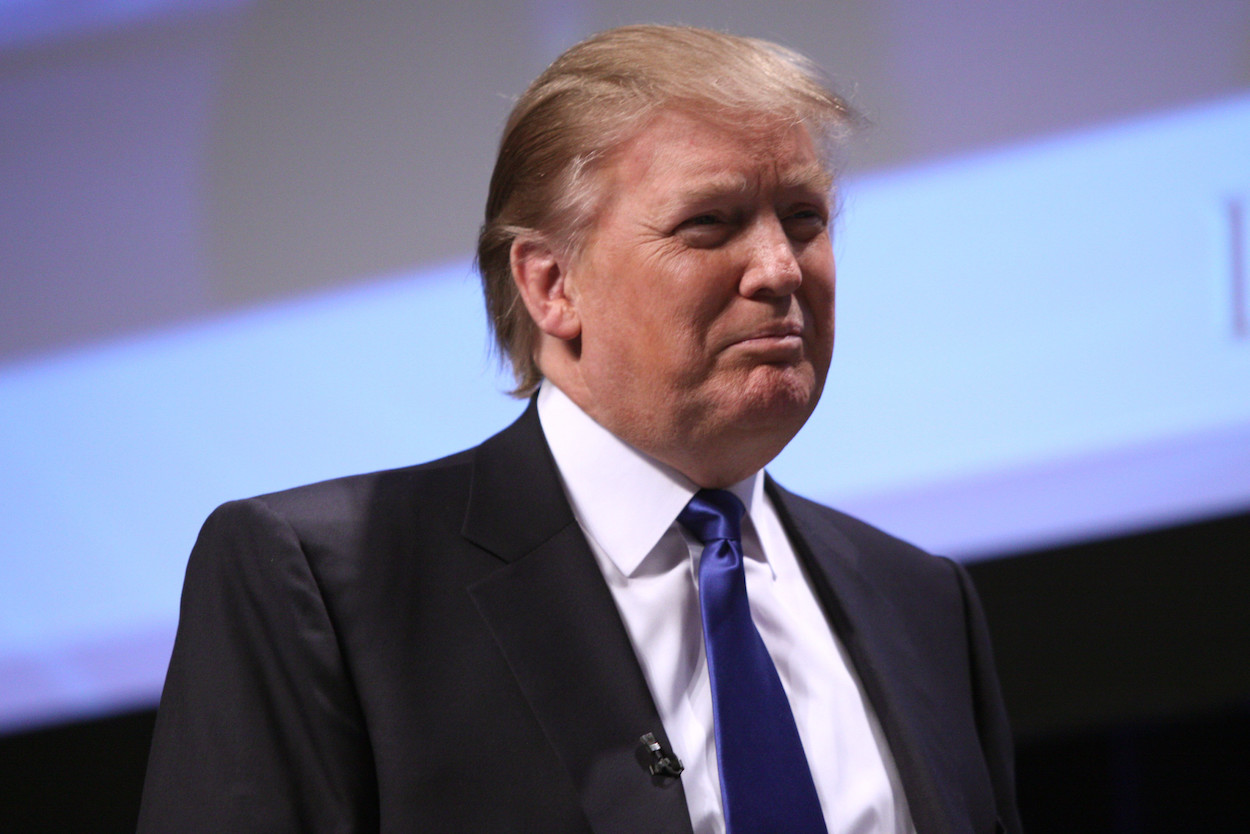by Brian Hioe
語言:
English
Photo Credit: Gage Skidmore/Flickr/CC
MUCH UNCERTAINTY remains about what occurs next for Taiwan during America’s presidential transition.
While Joe Biden has won the American presidential election, the Trump administration continues to refuse to concede the race, alleging voter fraud. The Trump administration is likely to pursue a legal challenge to try and overturn the election results and has refused to commit to a peaceful transition of power, with Secretary of State Mike Pompeo stating in public comments that he remains certain of a second Trump presidential term.
 US president-elect Joe Biden. Photo credit: Gage Skidmore/Flickr/CC
US president-elect Joe Biden. Photo credit: Gage Skidmore/Flickr/CC
30 former Republican lawmakers have called on Trump to accept the loss, with some reports suggesting that Trump’s son-in-law Jared Kushner and daughter Melania Trump had also called on him to do so earlier this month. At the same time, for now, it appears as if the Republican party continues to back Trump in his challenge to Biden’s election victory. The possibility has also been raised of Trump running again in 2024 if he eventually concedes.
In the meantime, the Biden administration has taken steps to project the authority of a clear presidential win, releasing a website touting the upcoming transition and soliciting funds to facilitate the transition, instead of allowing Trump to assert the political narrative of a contested result. Some in Taiwan, however, do seem to have accepted the view propagated by right-wing media outlets in America that the American media called the election early for Biden, that Trump was otherwise cheated of an election win, or conspiratorial views that Biden was aided by Chinese election interference.
It has been reported that the Trump administration could try to take last-minute actions designed to force the Biden administration into a more confrontational stance with China. This includes publicizing means by which the Chinese government has sought to influence and undermine democratic institutions in America, or calling attention to China’s labor abuses in the fishing industry, including allegations of forced labor.
The Trump administration has more generally sought to apply pressure to China regarding its use of forced labor, not only regarding China’s fishing industry, but also the use of imprisoned Uighurs as labor in Xinjiang. Yet, interestingly, despite the Trump administration’s attempts to signal stronger ties with Taiwan during the same timeframe as it pushed American policy toward a stronger stance against China, Taiwan was also listed by the Trump administration as a country that used forced labor in its fishing fleet. It is to be seen whether this could potentially come up as an unanticipated stumbling block for Taiwan during the Trump administration’s last months in office.
 US Secretary of State Mike Pompeo. Photo credit: Gage Skidmore/Flickr/CC
US Secretary of State Mike Pompeo. Photo credit: Gage Skidmore/Flickr/CC
Some experts have suggested that even though the Trump administration may seek to ramp up pressure on China during its last days in office, there is not likely to be any major shift regarding Taiwan policy. Nevertheless, as observed with comments on Taiwan made during a radio interview by US Secretary of State Mike Pompeo that broke from long-standing diplomatic precedents in which Pompeo asserted that Taiwan had never been part of China, it is not impossible that the Trump administration will shake up America’s Taiwan policy during the tail end of its tenure.
High-level meetings between the Trump administration and Tsai administration officials continue to take place. An online/offline economic dialogue between Taiwanese Minister of Economic Affairs Wang Mei-hua and US Under Secretary of State for Economic Growth, Energy and the Environment Keith Krach resulted in a memorandum of understanding being signed between Taiwan and the US earlier this week. In a surprise move, Environmental Protection Agency head Andrew Wheeler is set to visit Taiwan in December.
Otherwise, the incoming Biden administration has sought to signal the direction of its foreign policy by conducting telephone calls with regional leaders such as Japanese prime minister Yoshihide Suga, and South Korean president Moon Jae-in. These calls have happened amidst reports that the Trump administration has denied Biden classified information briefings usually provided to any president-elect awaiting office, leading Biden to conduct meetings with former national security officials on his own. A recent paper released by the State Department suggests that members of the State Department urge a continued confrontational stance on China, but would hope to shift toward a multilateral containment strategy, rather than unpredictable unilateral action, generally thought to be the direction American foreign policy would shift in under Biden, as compared to Trump.
But it has not gone unnoticed that no telephone call has yet taken place between president-elect Joe Biden and Taiwanese president Tsai Ing-wen. The idea of a Biden-Tsai phone call, in the vein of the December 2016 Trump-Tsai phone call, is an idea that became floated among experts as a way to indicate strong US-Taiwan ties, and to shift Trump-era policy on Taiwan in a bipartisan direction. Tsai was also asked about the possibility of such a phone call by domestic media in Taiwan.
 American president Donald Trump. Photo credit: Gage Skidmore/Flickr/CC
American president Donald Trump. Photo credit: Gage Skidmore/Flickr/CC
Such a call could still potentially happen. However, instead of a phone call, for the time being, Taiwan’s representative to the US, Hsiao Bi-khim, spoke with Biden advisor Antony Blinken earlier this week. Although Taiwanese presidents often travel to the United States after American presidential elections in order to conduct high-level meetings, though never meeting with the American president, this is not likely to take place at present given the current COVID-19 pandemic. As such, one expects that Hsiao’s role as Taiwan’s representative to the US will be disproportionately significant at present. Hsiao may be called upon to assume diplomatic functions traditionally played by the Taiwanese president vis-a-vis the US.
But it is also probably the case that the Tsai administration finds itself in an awkward position at present. The Tsai administration obviously intends to build ties with the incoming Biden administration, but may hope to benefit from last-minute actions by the outgoing Trump administration that may aid Taiwan. And with the Trump administration refusing to accept its defeat, the Tsai administration is likely hoping to avoid appearing too eager to build ties with the Biden administration.

